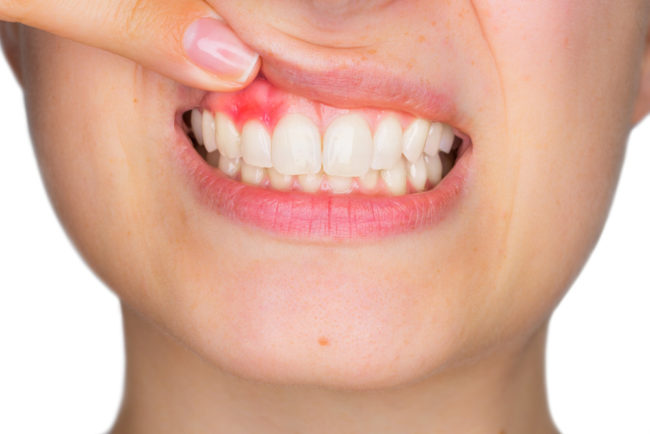Are your gums healthy? About 64.7 million Americans have some form of gum disease, and that is about 50 percent of the adult population over 30 years old. Periodontal disease affects the gum tissue and also the bone around teeth.
Left untreated, you could lose your teeth and have a higher risk for other chronic health issues like heart disease and diabetes. With these basic dental care tips, you can prevent gum disease and keep your mouth healthy.
1. Brush the Right Way
Along with brushing twice a day, it’s important you brush the right way to clean your teeth and remove bacteria and plaque. Instead of moving your toothbrush back and forth, you should move the toothbrush in tiny circular motions.
Be sure to brush for about 2-3 minutes. You also need to get every part of the tooth including the top, back, front, and back. Make sure you get to the gumline—here’s how to clean gums as you brush.
You don’t want to brush too hard because you can damage your gums and tooth enamel. Choose a soft bristle brush and brush lightly. Brushing too hard can cause gum erosion, tooth sensitivity, and permanent damage to the enamel.
2. Use Fluoride Toothpaste
A study found that brushing and flossing your teeth alone may not be enough to prevent tooth decay if you are not getting fluoride. Choose a toothpaste with fluoride to treat your teeth.
If you have city water, you can see if your area treats your water with fluoride. Reverse osmosis can remove fluoride, and if you have a well, you can check to see if you have any fluoride present. Most bottled water does not contain fluoride.
3. Rinse with Mouthwash
A therapeutic mouthwash can help reduce tartar build-up, prevent gum disease, remove plaque, and eliminate food particles. Mouthwash is not a replacement for brushing and flossing, but it can help keep your mouth healthy.
Make sure you swish the rinse for at least 30-60 seconds. You can use mouthwash before or after you floss and brush. You may want to wait after brushing to use mouthwash so you rinse out the fluoride from your toothpaste.
Find a brand that has the ADA seal to ensure the product is safe and effective.
4. Floss Every Day
Floss removes bacteria and plaque from in between your teeth. This is the area your toothbrush cannot reach. Flossing also helps prevent bad breath by getting rid of the trapped food between teeth.
Push the floss gently to the gumline—do not snap. Then hug your tooth to make sure you get all sides of the tooth. Move the floss up and down to remove plaque.
5. Rinse Your Mouth After Each Meal
Rinse your mouth out with water after every meal. Even is you don’t have mouthwash available, rinsing your mouth will remove some of the food to prevent plaque and tarter.
6. Stop Smoking
Smoking hurts your body’s immune system. This can make it difficult for the body to heal tissue including gums. If you have a dental procedure, smoking can make the healing process take much longer.
Smoking also makes your teeth yellow. It can make you have bad breath.
7. Eat Wisely
Be sure you limit your sugar because consuming sugar can cause cavities. Check for added sugar in processed foods.
You should also limit starchy foods such as chips, bread, pasta, and crackers because these foods can also lead to cavities. The longer food stays in your mouth can cause tooth decay because the bacteria feed on these simple sugars.
You should eat lots of fiber-rich vegetables and fruit. Dairy products are also good because they contain calcium—just check for added sugars.
Hard candy is especially bad for teeth because it stays in the mouth for a long time. Dried fruit has added sugars and tends to stick to the teeth, so you should choose fresh fruit instead.
If you enjoy gum, choose a sugar-free option. Gum with sugar will stick to the teeth and bacteria will feed on these simple sugars in your mouth.
8. Drink Water
Limit sugary drinks like juice and soda. Try drinking water during the day. Drink sugar-sweetened drinks with meals and in smaller amounts.
Like candy, these sugars can cause cavities and lead to tooth decay.
9. Change Your Toothbrush
You should change your toothbrush every 3-4 months. The bristles breakdown and they may not effectively remove plaque. Toothbrushes don’t last forever, and after time, toothbrushes can harbor bacteria if not cleaned.
10. Go to the Dentist Regularly
One of the best ways to keep your mouth healthy is to go to the dentist regularly for check-ups and cleanings. The hygienist will clean and remove hardened plaque and tartar that your toothbrush and floss can’t remove.
Your dentist will also check for signs of gum disease, cavities, mouth cancer, and other oral issues. Your dentist can help prevent a small issue from becoming a big problem with treatment.
You should visit the dentist every 6 months to keep your mouth healthy. If you notice any changes in your mouth, you should contact your dentist immediately.
Signs of Gum Disease
If you have any of these signs, you could have the start of gum disease:
- Red, puffy gums
- Loose teeth
- Bleeding gums
- Pus between gumline and teeth
- Chronic bad breath
- Receding gums that make the teeth seem bigger
Be sure to contact your dentist immediately if you have any of these signs. You don’t want any of these symptoms to get worse.
Final Thoughts on Basic Dental Care
It’s important to take care of your teeth. Brush at least twice a day—and also brush correctly. Floss every day to remove food from between your teeth.
You need to go to the dentist every 6 months to stay ahead of any oral issues and get a proper cleaning to remove hardened plaque and tartar. Watch the foods you eat and try to brush or rinse after every meal to prevent bacteria build-up.
These are some basic dental care tips that you can do to keep your teeth healthy at school.













